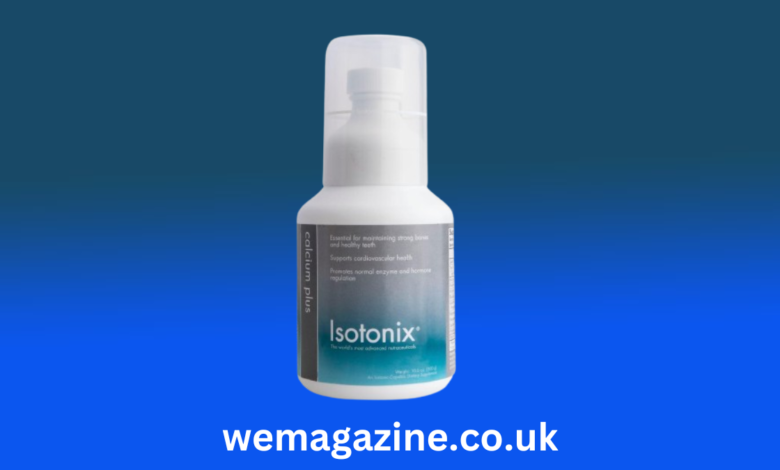Isotonix Lawsuit: Key Details You Need to Know

In recent months, Isotonix, a well-known brand in the health and wellness Isotonix Lawsuit, has found itself in the middle of a significant legal battle. The lawsuit has attracted widespread attention, leaving many consumers and industry experts wondering about the potential consequences for the company, its products, and the supplement industry as a whole. In this article, we will explore the details of the Isotonix lawsuit, the key allegations involved, and the broader implications for both consumers and the health product market.
1. Understanding the Isotonix Lawsuit
What is the Isotonix Lawsuit?
The Isotonix lawsuit is a legal case filed against the company for allegedly misleading consumers with false health claims and marketing tactics. Isotonix is a brand that offers a wide range of nutritional supplements, claiming that their products offer superior absorption rates due to their unique isotonic delivery system. However, some consumers and regulatory authorities have raised concerns that these claims may not be backed by sufficient scientific evidence.
At the heart of the lawsuit are accusations that Isotonix made exaggerated or unsubstantiated health claims, particularly related to the efficacy of their products in improving energy, boosting immune health, and promoting overall well-being. Plaintiffs argue that these misleading marketing strategies have caused harm to consumers who may have purchased products based on false information.
Background of Isotonix Products
Founded as part of the Market America network, Isotonix quickly grew in popularity by promoting its supplements as having superior absorption compared to traditional pills or capsules. The company touted its “isotonic” delivery system, claiming that it could deliver nutrients directly into the bloodstream more efficiently. This made their products particularly attractive to consumers looking for quicker and more effective health solutions.
The Isotonix product line includes a range of health supplements, from vitamins to minerals, and even joint health products. These supplements are marketed to address everything from energy levels to digestive health. The company’s focus on bioavailability and absorption has made them a staple in the dietary supplement market, but the legal challenges they now face could seriously alter their standing.
Legal Claims and Allegations
The primary allegation in the Isotonix lawsuit revolves around deceptive advertising. The plaintiffs claim that Isotonix exaggerated the health benefits of their products without providing substantial proof. Additionally, some of the products were alleged to contain ingredients that were either misrepresented or not disclosed in a clear and transparent manner. This has raised questions about whether the company was fully compliant with regulatory standards set by the FDA or other consumer protection agencies.
The lawsuit also brings into question the broader issue of supplement regulation, especially concerning companies that make bold claims without sufficient scientific backing. These legal battles have put a spotlight on how health supplements are marketed and the importance of ensuring that such products meet the necessary safety and efficacy standards.
2. Timeline of the Isotonix Lawsuit
Key Dates and Events in the Lawsuit
The Isotonix lawsuit officially began when a group of consumers filed a class action lawsuit against the company. The initial filings took place in late 2023, with plaintiffs alleging that they were misled by the company’s advertising claims. Since then, several hearings and legal motions have taken place, with both sides presenting evidence to support their claims.
Throughout the course of the lawsuit, Isotonix has maintained that their products are safe and that their claims regarding product efficacy are based on sound scientific research. However, consumer advocates and legal experts have argued that the company has not provided enough evidence to substantiate these claims. As of late 2024, the case is still ongoing, with no final ruling or settlement yet reached.
The Legal Process: What Happens Next?
The lawsuit is expected to continue through various stages, including discovery, depositions, and possibly a trial. During the discovery phase, both parties will exchange documents and gather evidence to support their respective arguments. If the case does not settle before trial, it could proceed to court, where a judge or jury will decide whether the claims are valid and if any penalties or compensation will be awarded.
One of the most likely outcomes of the case is a settlement, as companies often prefer to avoid prolonged litigation. However, the impact of such a settlement, including potential financial penalties or mandatory product reforms, could be significant for Isotonix.
Involvement of Regulatory Authorities
The lawsuit has drawn the attention of regulatory bodies like the Food and Drug Administration (FDA) and the Federal Trade Commission (FTC). These organizations are responsible for ensuring that dietary supplements are safe and accurately represented in marketing materials. While the FDA does not directly regulate supplement advertising, it does step in when a product is deemed unsafe or when there are concerns about misleading claims.
The involvement of these agencies could lead to stricter regulations and more scrutiny of Isotonix’s marketing practices. If the case results in a ruling that Isotonix’s advertising violated federal laws, it could set a precedent for how supplements are marketed in the future.
3. Impact of the Lawsuit on Consumers and the Supplement Industry
Consumer Impact
The Isotonix lawsuit has raised significant concerns among consumers, especially those who have used Isotonix products based on the advertised health benefits. If the lawsuit results in a finding that the company’s claims were false or misleading, it could mean financial compensation for affected consumers. This could include refunds for the products purchased, as well as potential damages if the court rules that Isotonix’s practices caused harm to its customers.
In addition to financial considerations, consumers are also concerned about the safety and efficacy of Isotonix products. If the company is found guilty of misleading claims, it may prompt other consumers to rethink their use of supplements that make similar bold claims without proper scientific evidence.
Implications for the Supplement Industry
The Isotonix lawsuit could have wide-ranging implications for the dietary supplement industry. Many companies use similar marketing tactics, claiming that their products offer superior absorption, increased energy, or other health benefits. If Isotonix loses the case, it may lead to a wave of legal challenges against other supplement manufacturers, especially those that make unproven health claims.
Additionally, the lawsuit may spur regulatory changes that require more transparency in supplement advertising. Companies could face stricter guidelines on what they can claim about the benefits of their products, which could ultimately result in more accurate labeling and better consumer protection.
Legal Precedents and Trends
The Isotonix case could also set a legal precedent for how supplement companies handle misleading advertising claims. As consumer awareness grows and more lawsuits are filed against health product manufacturers, it is likely that we will see more scrutiny of how supplements are marketed. This could lead to new industry standards and better consumer safeguards in the future.
4. What to Do If You’ve Been Affected by the Isotonix Lawsuit
Steps to Take for Affected Consumers
If you are a consumer who believes you have been misled by Isotonix’s marketing, you may be eligible to join the class action lawsuit or seek compensation. Affected consumers should consult legal experts or consumer advocacy groups to understand their options and the steps required to file a claim. Keep in mind that these cases can be lengthy, so it’s important to act quickly if you believe you are entitled to a refund or damages.
Additionally, if you are concerned about the safety of Isotonix products, you should stop using them immediately and consult with a healthcare professional to discuss any potential health risks.
Isotonix’s Response and Actions
In response to the lawsuit, Isotonix has publicly stated that it stands by the effectiveness and safety of its products. The company is likely to fight the case in court and may attempt to settle out of court to avoid prolonged litigation. As the case progresses, it will be important to monitor any updates from the company regarding product recalls, reforms, or changes to their marketing strategies.
What Are Your Legal Rights as a Consumer?
As a consumer, you have the right to be informed about the products you purchase. If a product is marketed with false or misleading claims, you may have legal recourse through consumer protection laws. This includes the right to refunds, compensation for damages, and the option to join collective legal action such as class actions.
Conclusion
The Isotonix lawsuit highlights important issues surrounding consumer protection, product transparency, and advertising in the health and wellness industry. While the legal process is still ongoing, the case serves as a reminder of the importance of clear and honest marketing, especially in industries that directly impact consumer health. As consumers, it’s essential to stay informed about the products we use, and companies must be held accountable for ensuring the safety and efficacy of their claims. This lawsuit may ultimately reshape the supplement industry, leading to more stringent regulations and consumer protections in the future.

